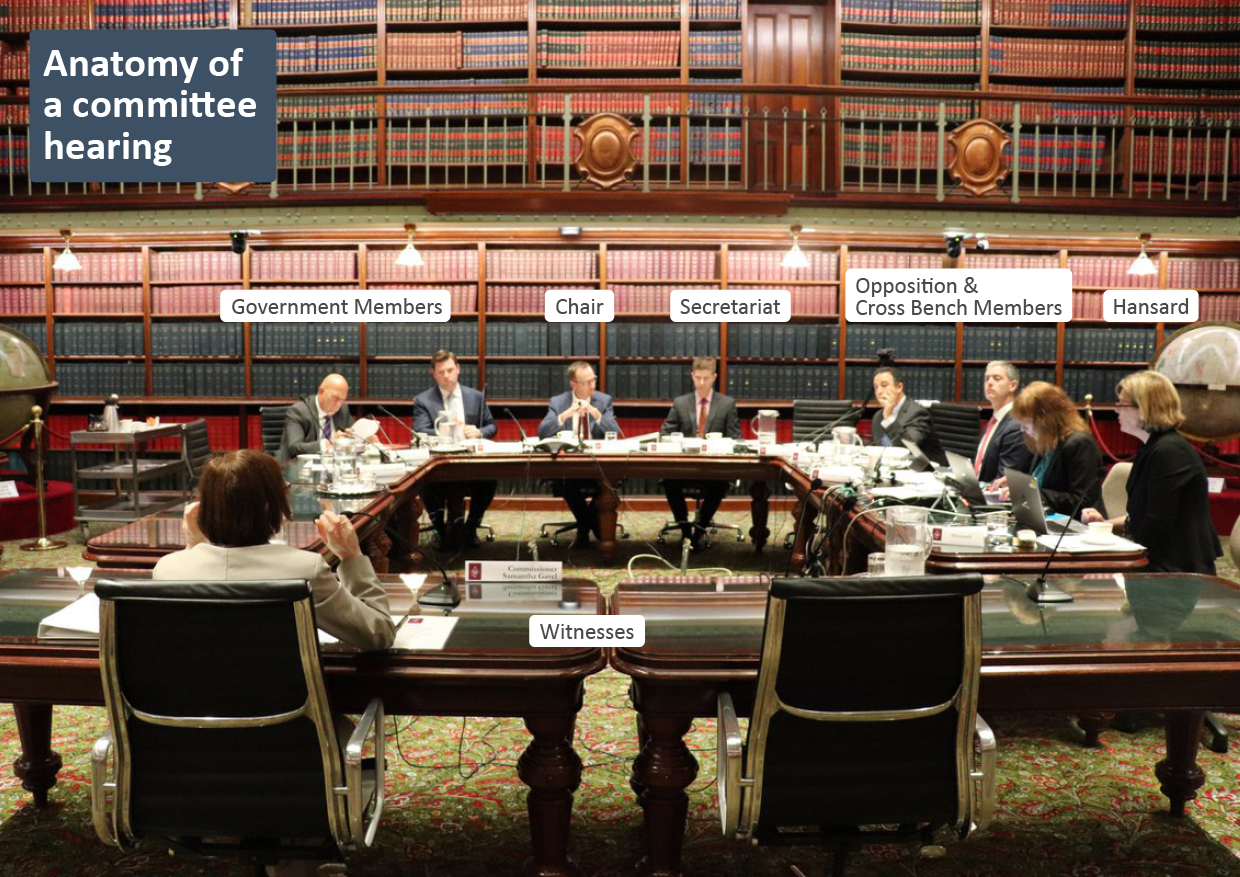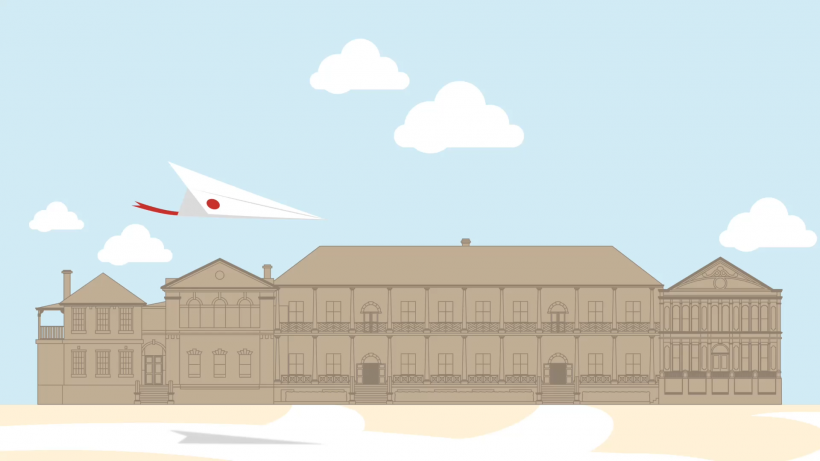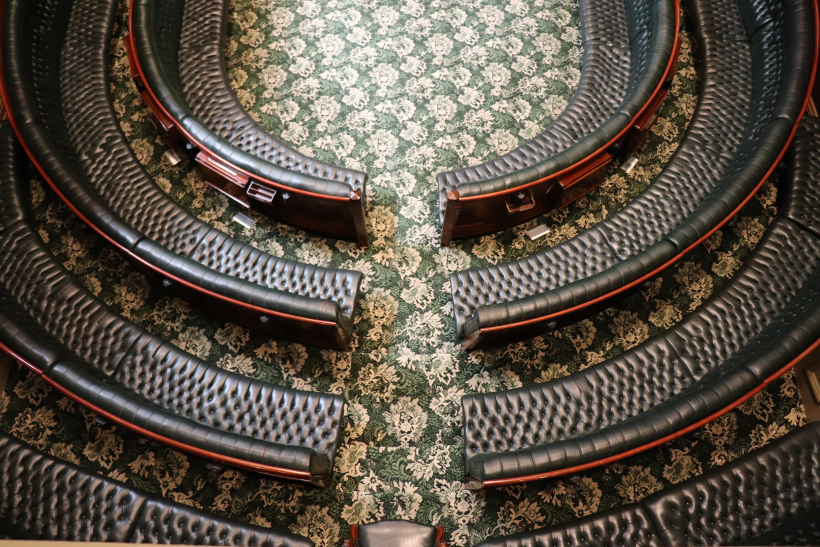Learning Outcomes
- Describe the role of agencies involved in law reform commissions, parliamentary committees, the media, non-government organisations
- Examine the conditions that give rise to law reform- changing social values, new concepts of justice, new technology
Syllabus Links
Syllabus Links
Part I: The legal system
- law reform
- agencies and mechanisms of reform including law reform commissions, parliamentary committees, the media, non-government organisations
Why Does the Law Change?
The law can change to reflect changes in our society. On our page Legislative Process you may have learned how statutory law is made by the Government.
Law reform is one of the processes of making fundamental changes to the law.
Statute law and policy usually begin as decisions made by the Government after consulting with various groups. Ideas can come from members of Parliament and political parties, community groups and organisations, government departments and business groups and parliamentary committees.
Parliamentary Committees
![]() The parliamentary
committee process enables advocacy processes that can influence and change the course of a bill leading to amendments or see the introduction of new legislation.
The parliamentary
committee process enables advocacy processes that can influence and change the course of a bill leading to amendments or see the introduction of new legislation.
Parliament appoints committees made up of members who are not ministers to inquire into matters and proposed new laws. They can look into:
• social or legal issues
• proposed government activities
• and the budgets and expenditures of government departments
Some committees also deal with ongoing matters such as overseeing the work of a particular body such as the Independent Commission Against Corruption (ICAC), or constantly reviewing road safety or government regulations.
The Committee Process
In their investigation process committees have ‘terms of reference’ stating the issues to be addressed and their scope.
Stages of a committee hearing
- Calls for submissions – from the public and organisations to put their views to the committee in writing.
- Public hearings – calling on people to appear before them to present their case and be questioned.
- Committee report – summarises their investigation and makes a series of recommendations. The final committee report is presented in Parliament (tabled) and it is then up to the government as to which recommendations it will act on and which ones it will not.
Committees On Tour
Committees will often hold hearings in other centres to make it easier for people to present evidence to them. Most of the people who appear before committees or make submissions are experts or represent particular groups or viewpoints in the community. In this way ideas and opinions from the community helps the committee and the Parliament to make decisions.
Committee Structure
Make up of each committee reflects the party numbers in the House, so government members are normally in the majority in Lower House (Legislative Assembly) committees.
In the Upper House (Legislative Council), where a government rarely has a majority of members, committees may have more cross bench members and fewer government members.
When a committee is inquiring into a controversial subject, the inquiry and the report may attract a lot of publicity, which in itself may make people more aware of the issues. Sometimes a committee is critical of a government’s activities, and the government may have to defend its actions or change them.

Types of Committees
Some committees exist permanently or for long periods. These include:
- Standing Committees – exist for the term of Parliament, but are usually renewed with each new parliament (for example the Road Safety Committee).
- Statutory Committees – are established by an act of parliament (for example the Regulation Review Committee).
Some committees are created by one or both of the Houses to inquire into and report on a particular matter and are then disbanded.
- Select Committees, which are appointed to investigate and report on a particular current issue such as a controversial government project.
- Joint committees involve members from both Houses of Parliament.
A list of committees can be found here.
The Legislative Review Committee
Some bills have a review mechanism built into them (once they become law), that suggests they should be reviewed by a committee or the minister after a certain period of time. Amending bills can also be introduced by ministers or members to update or change an Act. Committees can also make recommendations to the Government about reform.
The Legislation Review Committee plays an important role of our legislative process. It reviews all bills introduced into, and regulations tabled in, Parliament and reports on their impact on personal rights and liberties.
Did you know?
The Legislative Review Committee was established under the Legislation Review Act 1987.
In 2019 the Legislation Review Committee reviewed over 270 regulations and reported on all 91 bills that came before the Parliament.
Committees and Legislation
CASE STUDY: Crimes (Appeal and Review) Amendment (Double Jeopardy) Bill 2019
In 2019 Member of the Legislative Council David Shoebridge introduced a private members bill that was intended to amend the Crimes (Appeal and Review) Act 2001 and to extend an exception to the rule against double jeopardy in relation to an acquitted person where previously inadmissible evidence becomes admissible.
The bill was introduced to address the legislative barriers encountered by the Bowraville cases, which involved the deaths of three Indigenous children in the early 1990s.
After the Second Reading in the Upper House the bill was referred to the Standing Committee on Law and Justice. That committee needed to hear from a variety of stakeholders about the impact of this proposed change to the law.
The committee took evidence from a range of stakeholders including:
- The Director of Public Prosecutions
- Public Defenders
- Legal Aid NSW
- NSW Bar Association
- Professor David Hamer of the Sydney Law School at the University of Sydney
- Legal representatives of the Jumbunna Institute for Indigenous Education and Research at the University of Technology Sydney.
Helpful Links
Other Agents of Law Reform
1. State Statutory Bodies
State statutory supervisory bodies and Commissions carry out research and examine laws to make recommendations to the Parliament.
A number of state statutory supervisory bodies have been set up by legislation. They closely watch, investigate and report on the activities of the government. Many of these bodies guard against corruption and unfair use of power and may lead to law reform.
Commissions have been set up in NSW to investigate allegations of corruption, abuse of power and unfairness.
- The Independent Commission Against Corruption (ICAC ) investigates corrupt conduct by or affecting NSW state and local government authorities.
- The Police Integrity Commission investigates allegations of corruption and other complaints against police.
- The Health Care Complaints Commission investigates conduct or patient care issues relating to the health care professionals or services.
These commissions are watched over by the Parliament but are independent of the Government, can investigate abuses, can recommend prosecutions and changes to the Law.
Law Reform Commission
The NSW Law Reform Commission provides legal policy advice to the Government on issues that are referred to it by the Attorney General.
The work of the commission;
- improves and modernises the law
- simplifies and consolidates the law
- removes inefficiencies and defects in the law
- repeals laws that are unnecessary and obsolete, and
- provides improved access to justice
Stages in the work of the commission:
- The Attorney General also provides the terms of reference that specify the scope of the review and reporting date. Research into the law is conducted, as are literature reviews, and consultations with people affected by the law. Invitations for “preliminary submissions” are released. Issues to be addressed in the review are finalized.
- Consultation papers are released (providing background information), key issues are developed as options for reform. These will be a guide for submissions.
- Submissions are invited in response to each consultation paper. In submissions people express ideas, opinions, and experiences about the law under review. Through this process the commission can gauge what people think about the current laws.
- Through consultation the commission gathers views and opinions from those affected by the issue, including those of members of the community affected by the law, interest groups, experts, NGOs, and Government agencies.
- A final report is produced that makes recommendations for reform to the Attorney General.
- The Attorney General tables the report in Parliament. The NSW Government will then decide whether to implement the recommendations through legislation or administrative action.
2. Non-government organisations
There are hundreds of non-governmental organisations that also watch the activities of government, various interest and lobby groups (pressure groups) to ensure the law is modernised. These groups keep a close eye on the laws that concern them, they research issues affecting their industry or interest group and work to advocate for them and to bring about change in their areas of concern.
These groups are as diverse as the community itself. A few examples include political parties, commercial and industry organisations, medical and pharmaceutical organisations, professional associations, trade unions, conservation groups, education systems and groups, arts and cultural bodies, resident action groups, human rights watch organisations, peak sporting bodies etc.
3. The Media
The media watches and reports on the activities of the government. By keeping a watchful eye on decision making, it has the ability to make issues public and hold the government to account. The media plays a part and role in influencing and determining the direction of public opinion which can further affect future legislation.
Most media organisations are privately owned and are commercial enterprises. They offer advertising opportunities and entertainment rather than just news reporting. For this reason media neutrality is questionable and with ownership concentrated in the hands of a few enterprises there is a narrowing of views, attitudes and opinions presented to the public.
The media functions at its best when it is able to reveal issues and allegations of corruption and abuse of power which can result in further investigations that may affect policy and legislation.





